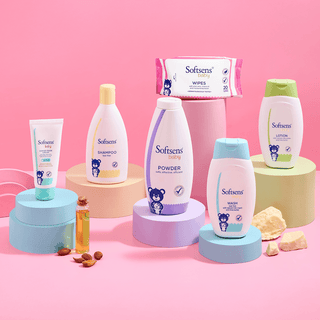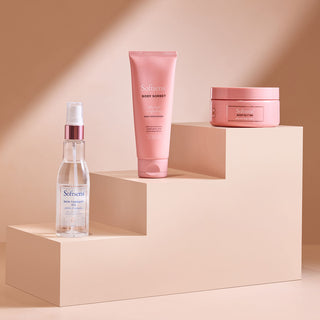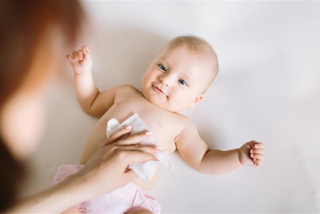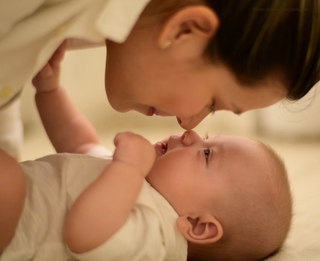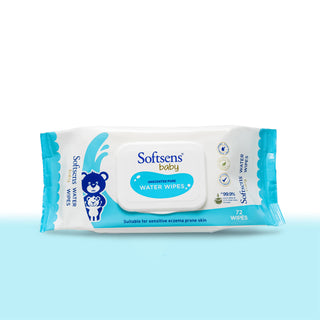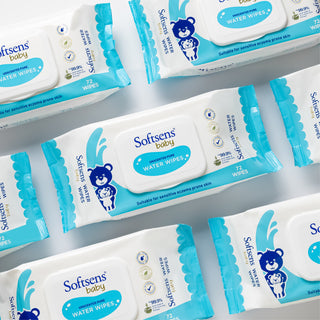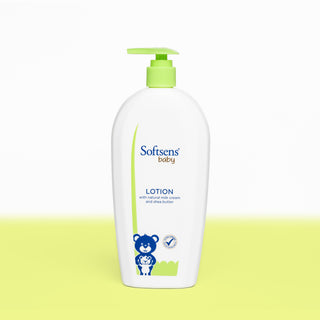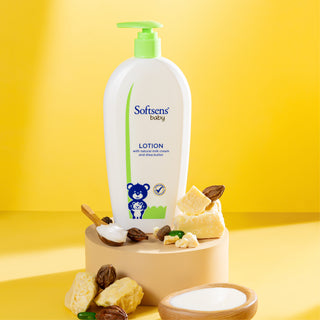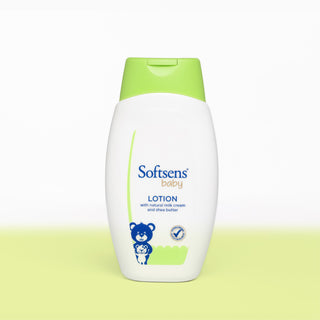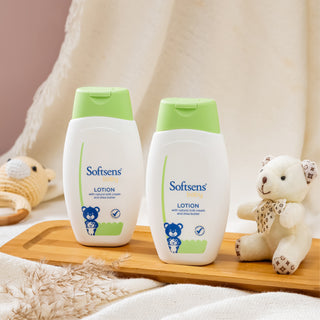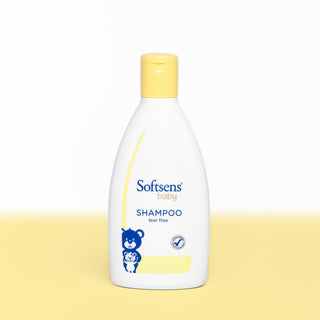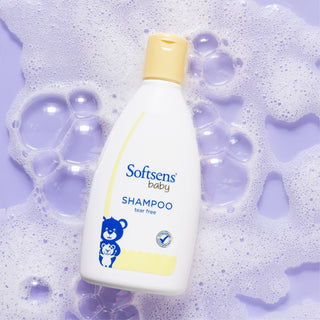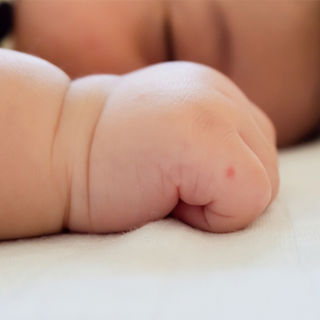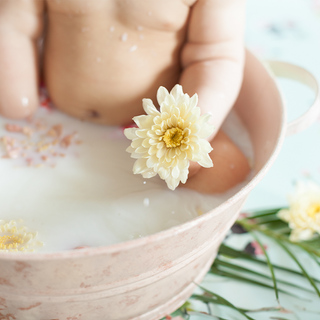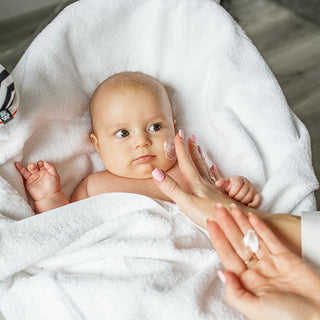In recent years, parents have become increasingly cautious about the products they use on their children, particularly when it comes to baby care items. One of the main concerns revolves around the use of DEET in mosquito repellents and other baby care products. This comprehensive article aims to shed light on what DEET-free means, the importance of reading ingredients, and how to buy DEET-free baby products and make informed decisions when purchasing other baby care products.

Understanding DEET and DEET-Free Products
What is DEET?
DEET, or N,N-Diethyl-meta-toluamide, is a chemical commonly used in insect repellents. Developed by the U.S. Army in 1946, it has been widely used for decades due to its effectiveness in repelling mosquitoes, ticks, and other biting insects. DEET works by interfering with the insects' ability to detect the presence of humans, thereby reducing the likelihood of bites.
What Does DEET-Free Mean?
DEET-free products are those that do not contain DEET as an active ingredient. Instead, these products use alternative ingredients, often derived from natural sources, to provide protection against insects. Common alternatives include essential oils like citronella, eucalyptus, lemongrass, and lavender, which are known for their insect-repelling properties.
The Importance of DEET-Free Baby Products
Safety Concerns
One of the primary reasons parents opt for DEET-free products is safety. Although DEET is effective, it has been associated with various health concerns, especially when used in high concentrations or over extended periods. Potential side effects of DEET include skin irritation, allergic reactions, and, in rare cases, neurological issues. Children are particularly vulnerable to these adverse effects due to their developing bodies and thinner skin, which can absorb chemicals more easily.
Environmental Impact
DEET is not only a concern for human health but also for the environment. Studies have shown that DEET can persist in the environment and contaminate water sources, posing risks to aquatic life. By choosing DEET-free products, consumers can help reduce their environmental footprint and promote the use of more sustainable and eco-friendly ingredients.
Why It's Important to Read Ingredients in Baby Care Products
Transparency and Awareness
Reading the ingredient list on baby care products is crucial for ensuring transparency and making informed choices. Many products on the market contain a plethora of chemicals, some of which may not be suitable for young children. By carefully examining the ingredients, parents can identify potential allergens, irritants, and harmful substances.
Avoiding Harmful Chemicals
Apart from DEET, other chemicals commonly found in baby care products can also pose risks. For instance, parabens, phthalates, and synthetic fragrances have been linked to health concerns ranging from hormonal disruptions to respiratory issues. By being vigilant about ingredients, parents can avoid these harmful substances and choose products that are safer for their babies.
Common Ingredients in DEET-Free Baby Care Products
Essential Oils
Essential oils are a popular choice for DEET-free baby care products due to their natural insect-repelling properties and added skin benefits.
-
Citronella Oil: Known for its distinctive lemony scent, citronella oil is a natural insect repellent that is effective against mosquitoes and other bugs. It is often used in sprays, lotions, and candles.
-
Eucalyptus Oil: Eucalyptus oil has a refreshing scent and is known for its ability to repel insects. It also has anti-inflammatory and antimicrobial properties, making it a beneficial ingredient for skin care products.
-
Lemongrass Oil: Lemongrass oil is another effective natural repellent. It is often combined with other essential oils to enhance its efficacy and provide a pleasant fragrance.
-
Lavender Oil: Lavender oil is gentle on the skin and has a calming effect, making it ideal for baby care products. It also repels mosquitoes and other insects while soothing and moisturizing the skin.
Plant-Based Extracts
Plant-based extracts are commonly used in DEET-free baby care products to provide additional skin benefits and enhance the effectiveness of essential oils.
-
Aloe Vera: Aloe vera has soothing and moisturizing properties. It helps calm irritated skin and provides a protective barrier against environmental factors.
-
Calendula Extract: Calendula extract is derived from marigold flowers and has anti-inflammatory and healing properties. It is gentle on the skin and suitable for babies with sensitive skin.
-
Chamomile Extract: Chamomile extract has calming and anti-inflammatory properties. It is often used in baby lotions and creams to soothe and protect delicate skin.
Making Informed Choices: Tips for Parents
Research and Educate Yourself
Knowledge is power when it comes to choosing baby care products. Parents should take the time to research and educate themselves about the ingredients commonly used in these products. Reliable sources include scientific studies, reputable health organizations, and expert recommendations.
Look for Certifications
Certifications can provide reassurance about the safety and quality of baby care products. Look for products that have been dermatologically tested, hypoallergenic, and certified organic. Certifications from organizations like the Environmental Working Group (EWG) and the USDA Organic seal can help identify products that meet stringent safety and environmental standards.
Read Reviews and Seek Recommendations
Reading reviews from other parents and seeking recommendations from trusted sources can provide valuable insights into the effectiveness and safety of baby care products. Online forums, parenting groups, and product review websites are good places to start.
Patch Test New Products
Before using a new product on your baby, it's a good idea to perform a patch test. Apply a small amount of the product to a small area of your baby's skin and observe for any adverse reactions over 24 hours. This can help prevent potential allergic reactions or skin irritations.
Try Softsens Baby Natural Diaper Rash Cream
The Role of Regulations and Standards
Government Regulations
In many countries, baby care products are subject to stringent regulations and standards to ensure their safety and efficacy. Regulatory bodies such as the U.S. Food and Drug Administration (FDA) and the European Medicines Agency (EMA) oversee the approval and monitoring of these products. However, regulations can vary by country, so it's important for parents to be aware of the specific standards in their region.
In India, the regulation of baby care products falls under the purview of the Central Drugs Standard Control Organization (CDSCO) and the Bureau of Indian Standards (BIS). These organizations ensure that baby care products meet specific safety and quality standards before they are made available to consumers.
CDSCO: The Central Drugs Standard Control Organization is responsible for approving and regulating pharmaceuticals and medical devices, including certain baby care products. It ensures that these products comply with safety, efficacy, and quality standards through rigorous testing and evaluation.
BIS: The Bureau of Indian Standards sets national standards for various products, including cosmetics and baby care items. BIS certification is a mark of quality assurance, indicating that the product meets the prescribed safety and performance criteria. BIS standards cover a wide range of aspects, including ingredient safety, product labeling, and packaging.
Cosmetics Rules, 2020: These rules were implemented to ensure the safety and quality of cosmetic products in India, including baby care items. They require manufacturers to adhere to Good Manufacturing Practices (GMP) and provide detailed information about the ingredients used in their products. This transparency helps consumers make informed choices and ensures that the products are safe for use on babies and young children.
Understanding and adhering to these regulations is crucial for manufacturers, as it ensures the safety and reliability of their products. For parents, being aware of these standards can provide peace of mind, knowing that the baby care products they choose comply with stringent safety requirements.
Industry Standards
The baby care industry also follows various standards and guidelines to ensure the quality and safety of products. Organizations like the Cosmetic Ingredient Review (CIR) and the International Fragrance Association (IFRA) provide guidelines on the safe use of ingredients in cosmetics and personal care products. Manufacturers often adhere to these standards to gain consumer trust and ensure product safety.

The Future of Baby Care Products
Trends in Natural and Organic Products
The demand for natural and organic baby care products is on the rise as parents become more conscious of the ingredients they use on their children. This trend is driving innovation in the industry, with manufacturers exploring new natural ingredients and formulations to meet consumer expectations.
Click Here: Softsens Baby Skin Nourishing Essentials Kit
Technological Advancements
Advancements in technology are also shaping the future of baby care products. For instance, the development of safer preservatives and more effective natural insect repellents is ongoing. These innovations aim to enhance the safety and efficacy of baby care products while minimizing potential risks.
Case Studies and Research
Study on DEET Alternatives
A study published in the Journal of Insect Science evaluated the effectiveness of various DEET alternatives, including essential oils like citronella, eucalyptus, and lemongrass. The study found that these natural ingredients provided comparable protection against mosquitoes, highlighting their potential as safer alternatives to DEET.
Research on Essential Oils
Research conducted by the National Institute of Health (NIH) examined the safety and efficacy of essential oils in baby care products. The study concluded that essential oils, when used in appropriate concentrations, are generally safe and effective for repelling insects and providing skin benefits.
Environmental Impact Studies
Environmental impact studies have shown that DEET can persist in water sources and negatively affect aquatic life. Conversely, natural ingredients like citronella and eucalyptus oils are biodegradable and have a lower environmental impact, making them more sustainable choices for baby care products.
Conclusion
Choosing DEET-free baby care products is an important step towards ensuring the safety and well-being of your child. By understanding what DEET-free means, recognizing the importance of reading ingredients, and making informed choices, parents can provide the best care for their little ones. With a growing demand for natural and organic products, the baby care industry is evolving to offer safer, more effective alternatives. As parents, staying informed and vigilant about the products you use can make a significant difference in your child's health and the environment.
By staying informed and opting for DEET-free products, you can ensure a safer, healthier environment for your baby and contribute to a more sustainable future.



